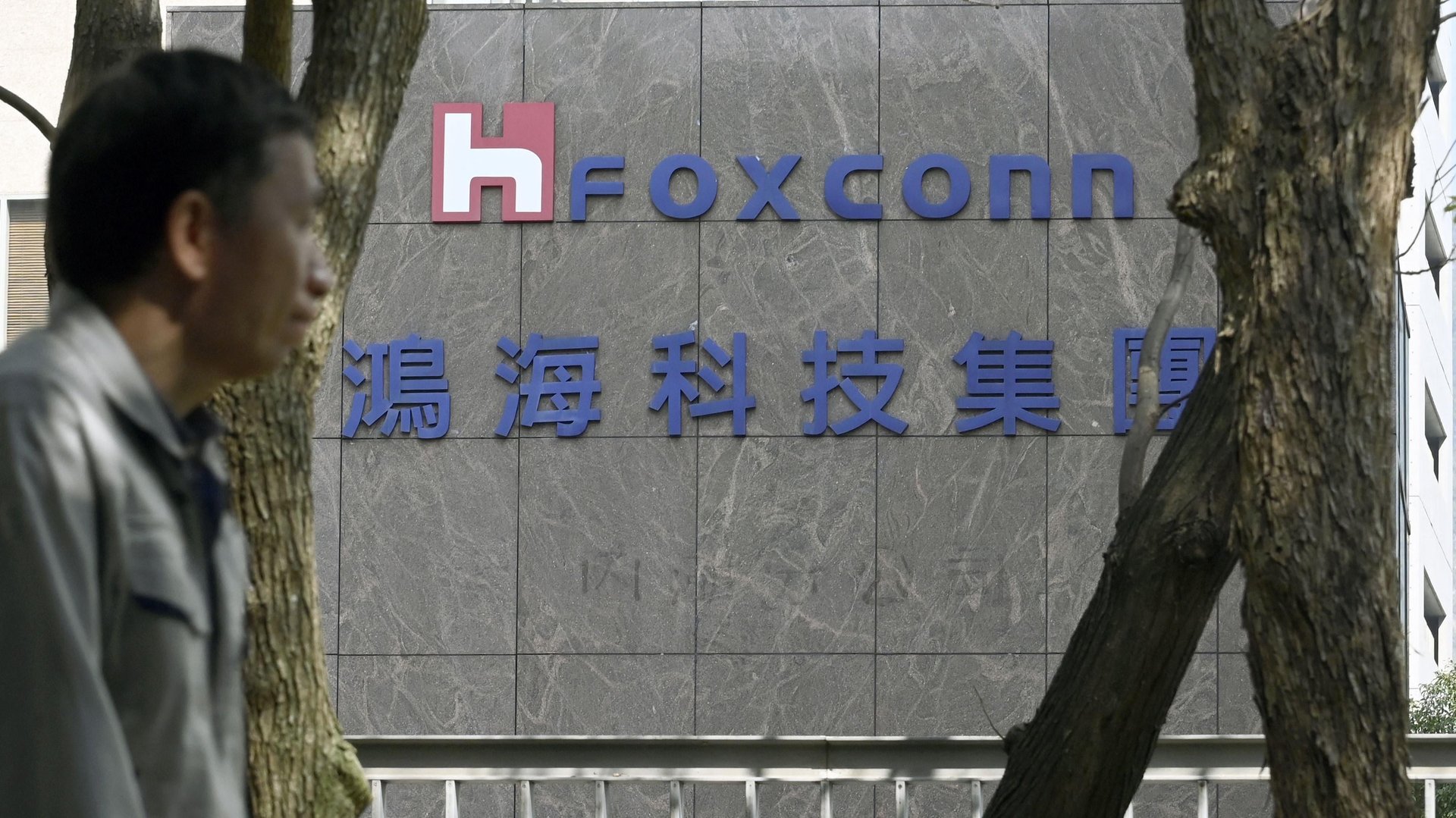Yet another lockdown in China will test the world’s biggest iPhone factory’s “closed loop” management system
The Zhengzhou plant has already seen an exodus of workers over covid lockdown fears

The industrial park that houses Foxconn’s main iPhone plant in China’s Zhengzhou is going into a strict lockdown for a week.
As covid-19 cases rise in and around the iPhone maker’s factory, the government is barring citizens from leaving their homes from Nov. 2-9. No vehicles, except those ferrying essentials, will be allowed on the road.
Technically, the iPhone factory can’t let workers or parts for assembly in and out.
The measure isn’t entirely surprising: Curbs to contain covid-19 have been closing in on the industrial area for weeks now. Any signs of restrictions lifting in the capital of the Henan province have been dismissed as performative by locals who have been grappling with violent enforcement, inadequate health care, and mental stress.
But Foxconn has tried to maintain the illusion that it’s been business as usual. Workers, equipped with masks and sanitizers, continue their work under a “closed-loop” management system—they live and work in the factory complex. But is it really working?
Foxconn’s workers are in distress
The larger sacrifice of residing and working on site wasn’t the end of workers’ woes:
🍲For a couple weeks, Foxconn banned all dine-in at canteens, requiring workers to take their meals in their dormitories. It provided three meals free of charge daily, but it wasn’t always in prime condition
🚪Workers could only take a few routes across the complex since many entrances were shut
🤒Foxconn apparently didn’t pay much heed to those affected by the virus. There was no food or medicine provided, and employees who tested positive were isolated in nearby unfinished apartment buildings, according to China Labor Watch
🏃While the factory claims it has been arranging transport for workers who want to go home, videos on social media show employees lugging suitcases and jumping fences. The fear of lockdown and unsafe working conditions has been compelling thousands to flee.
Foxconn’s Zhengzhou iPhone factory, by the digits
200,000: Workers in the Zhengzhou plant; the largest iPhone production site in the world, of which around have have reportedly left
45%: Share of Foxconn’s revenues that come from Apple
80%: Foxconn’s Zhengzhou facility is responsible for the bulk of the iPhone 14 series production, according to Counterpoint senior analyst Ivan Lam.
10%: Share of global iPhone production hit when the Zhengzhou factory abruptly adopted its “closed-loop” strategy, according to TF International Securities analyst Ming-Chi Kuo
30%: Apple’s iPhone production to slump in November due to lockdown restrictions
400 yuan ($55): Daily bonuses for Foxconn employees have quadrupled from 100 yuan, according to the official WeChat account of Foxconn’s Zhengzhou plant
25 miles: How far one worker walked to flee the lockdown
Unknown: How many employees have been infected, how many new cases are occuring in the factory, and how many—if any—have received treatment
China’s zero-covid strategy is hurting business
To contain the resurgence of Covid, the Chinese government has given cities the power to adopt snap lockdowns, mass testing, and lengthy quarantines. To reduce the impact of the sudden and drastic measures, several businesses from battery factories to ports have adopted closed loop systems. Drone maker DJI and automaker BYD also jumped on the bandwagon. Ahead of the holiday season, Foxconn has adopted the strategy to keep production running, too.
Besides siloing off workers in covid-hit areas, Foxconn is also trying to make up for the loss in production in Zhengzhou with its factories elsewhere, like Shenzhen. Foxconn’s India plant could’ve been another option, but it’s a much smaller-scale operation.
Regardless, Apple, a trillion dollar behemoth, can likely stomach the production slowdown. But not all businesses can.
Several companies are bogged down by productivity losses. The world’s factory keeps shutting and reopening parts, hurting economic activity across industries and across the world. Players in retail, food and beverage, tourism, and more, are suffering because of the constant uncertainty, too.
The mounting protests, anti-lockdown graffiti, and altercations with the police are proof the public is irate about not being able to resume normal life, like much of the rest of the world.